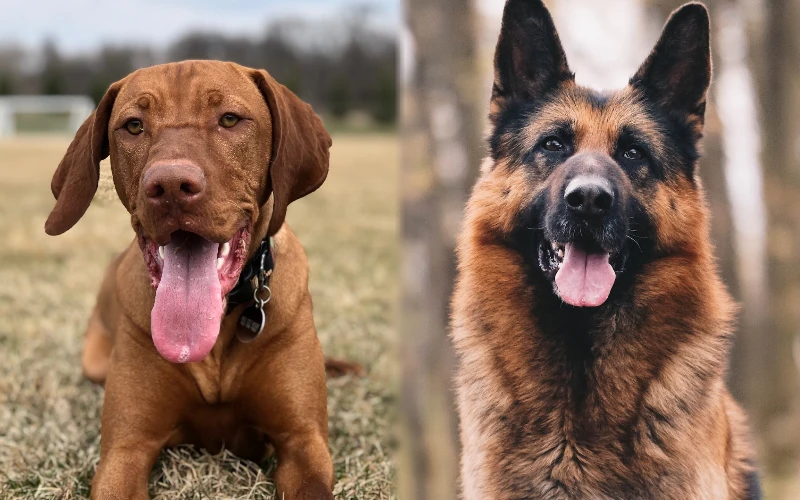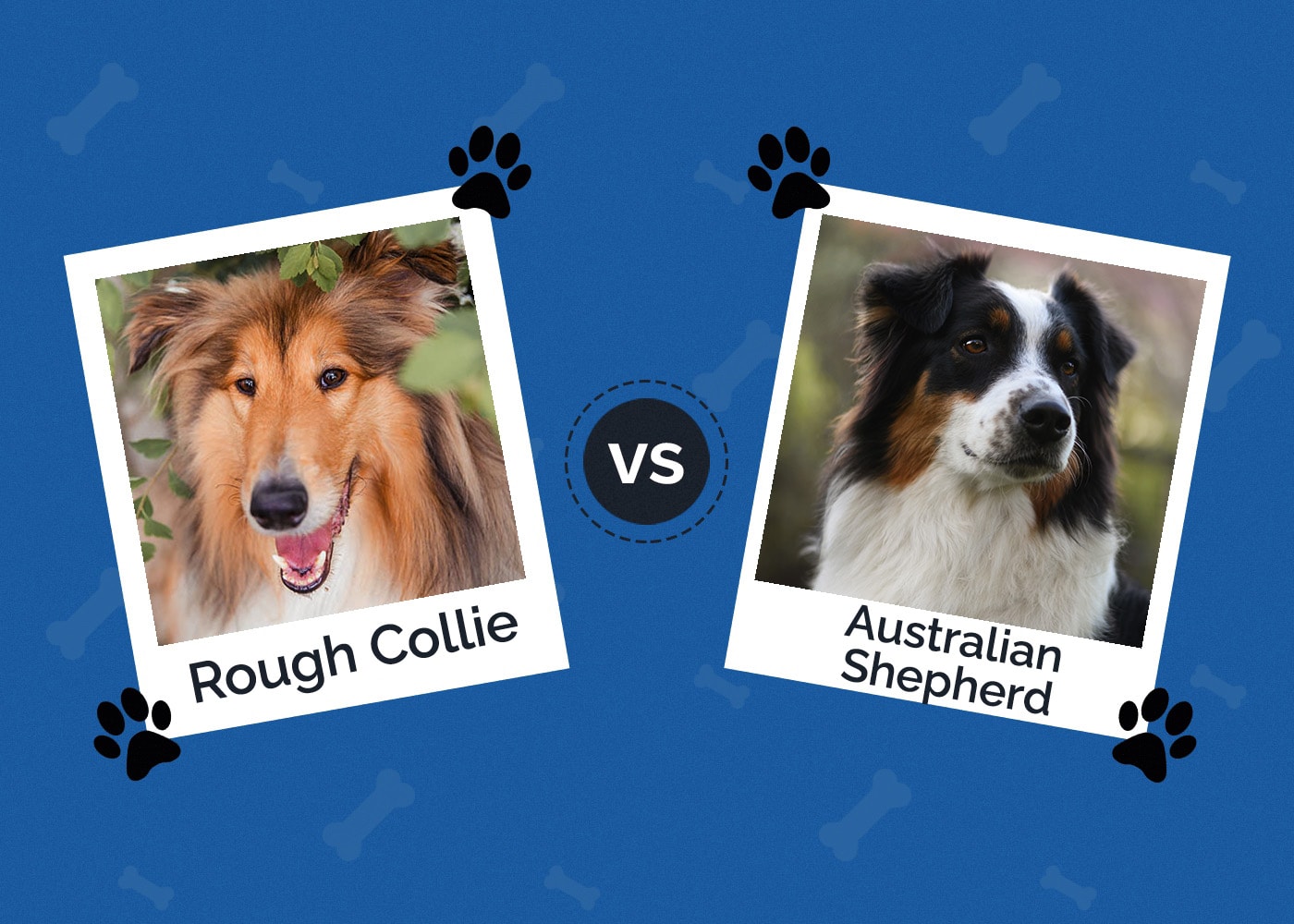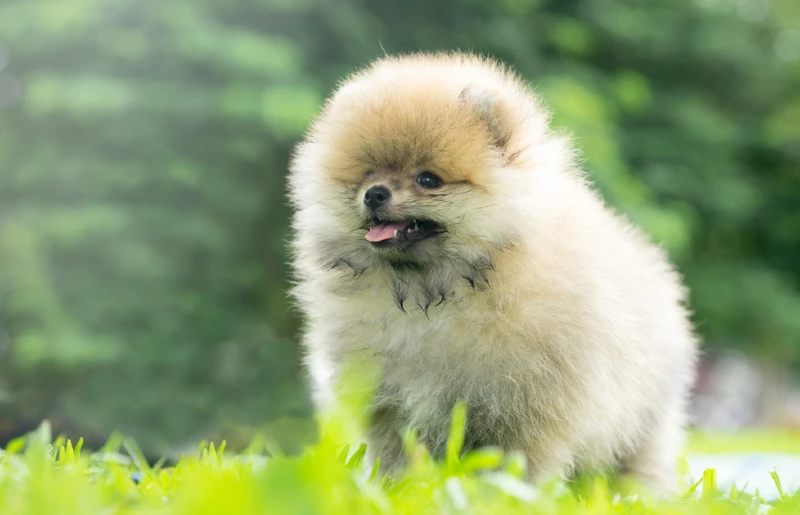Why Puppies Bite: 8 Vet-Reviewed Reasons & How to Stop It

Updated on
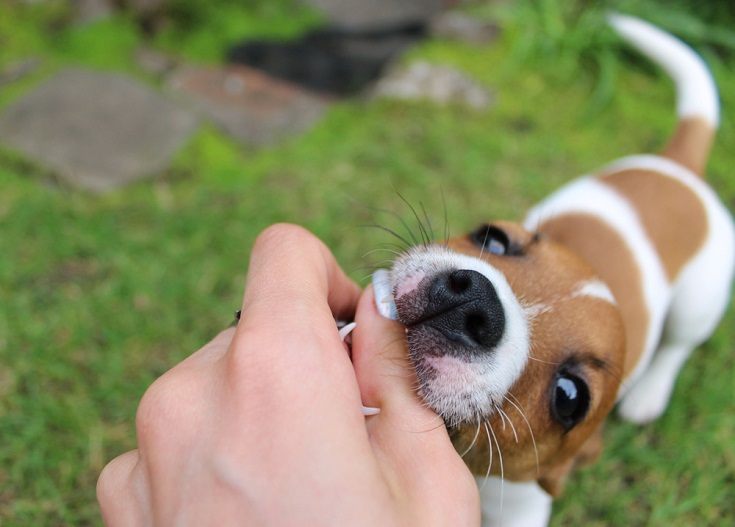
Bringing a fluffy, energetic puppy into the home can fill the household with joy, laughter, and (unfortunately) occasional ouches from sharp puppy teeth. Puppies biting or “mouthing” is normal behavior.
However, it is important to understand why it happens and how it can be managed effectively. Here, we’re sharing the top 8 reasons that puppies bite and providing detailed advice on how to stop it.
Top 8 Reasons Why Your Puppy Bites
1. Teething
The first and one of the most common reasons why puppies bite is teething. Like human babies, when puppies are around 3 to 5 months old, they start losing their baby teeth, and new, permanent ones begin to erupt.
This process can cause discomfort and an itchy sensation in their gums, leading them to chew on anything they can get their paws on, including human hands and feet.
How to Stop It: To alleviate the discomfort from teething, provide your puppy with plenty of appropriate chew toys. These toys can help soothe their gums and keep them occupied, reducing the chance of them turning their attention to biting people.
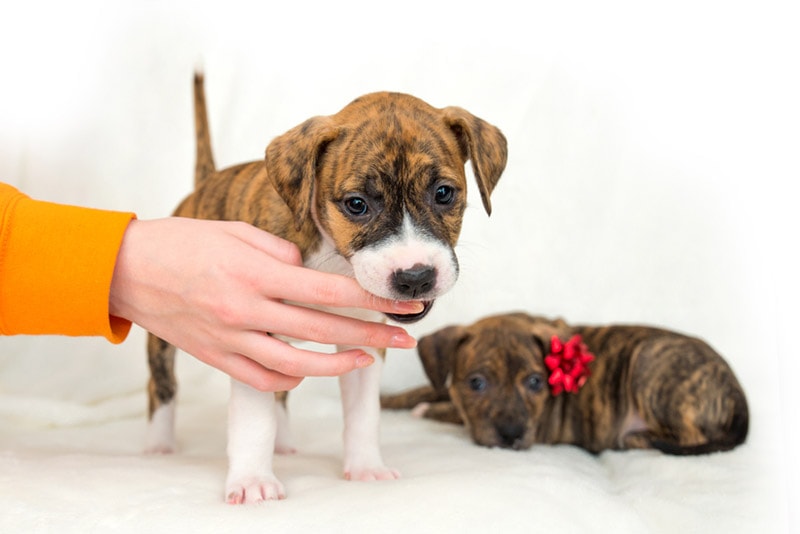
2. Exploring the World
Another reason puppies bite is their innate curiosity. Dogs, especially puppies, explore their surroundings using their mouths. By mouthing and biting objects, they learn about their texture, taste, and other characteristics. It’s a fascinating world out there, and your puppy is excited to take a bite out of it—quite literally!
How to Stop It: Positive reinforcement is key here. Whenever your puppy investigates something with their nose instead of their mouth, shower them with praise and treats. Over time, this will teach them that exploring without biting is a rewarding behavior.
3. Playfulness
For puppies, biting can be a form of play. In the wild, young canines learn to socialize and communicate with their siblings through play biting. When puppies are brought into human homes, they often continue this behavior, treating their human family as they would their canine one.
How to Stop It: Substitute your hand or foot with a toy whenever your puppy gets in a playful mood. Encouraging play with toys rather than with hands will teach them the appropriate way to play without hurting anyone.
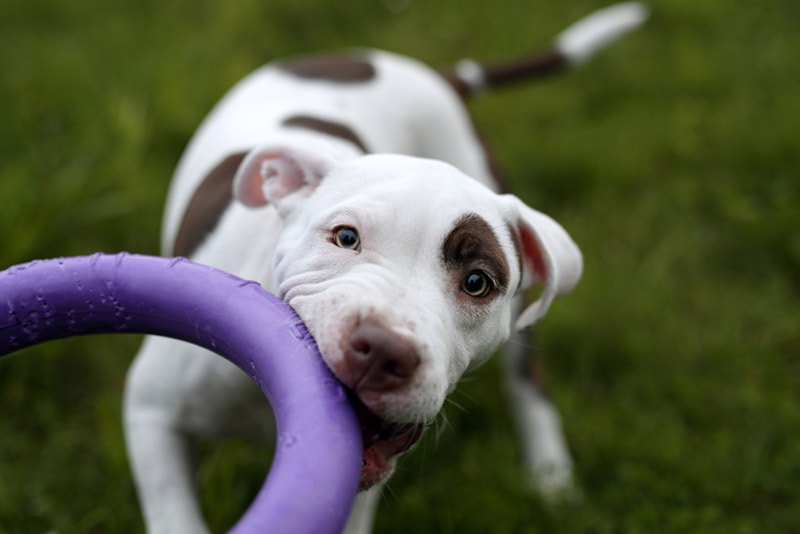
4. Attention-Seeking Behavior
At times, puppies might resort to biting to get your attention. This behavior can be reinforced if you respond by giving them attention, even if it’s negative. Puppies, like children, sometimes act out when they feel ignored or bored.
How to Stop It: Ignore your puppy when they bite to seek attention. Instead, reward them with praise or treats when they are calm and behaving well. Consistency is essential here to ensure that your puppy understands what behavior is acceptable.
5. Fear or Anxiety
Sometimes, puppies might bite due to fear or anxiety. This could be in response to a new environment, new people, or other pets in the house. It is their way of communicating their discomfort or unease about a situation.
How to Stop It: Desensitize and socialize your puppy as early as possible, and expose them to different situations, people, and pets in a controlled and gentle manner. Use positive reinforcement to reward your puppy for calm behavior in new or potentially stressful situations.
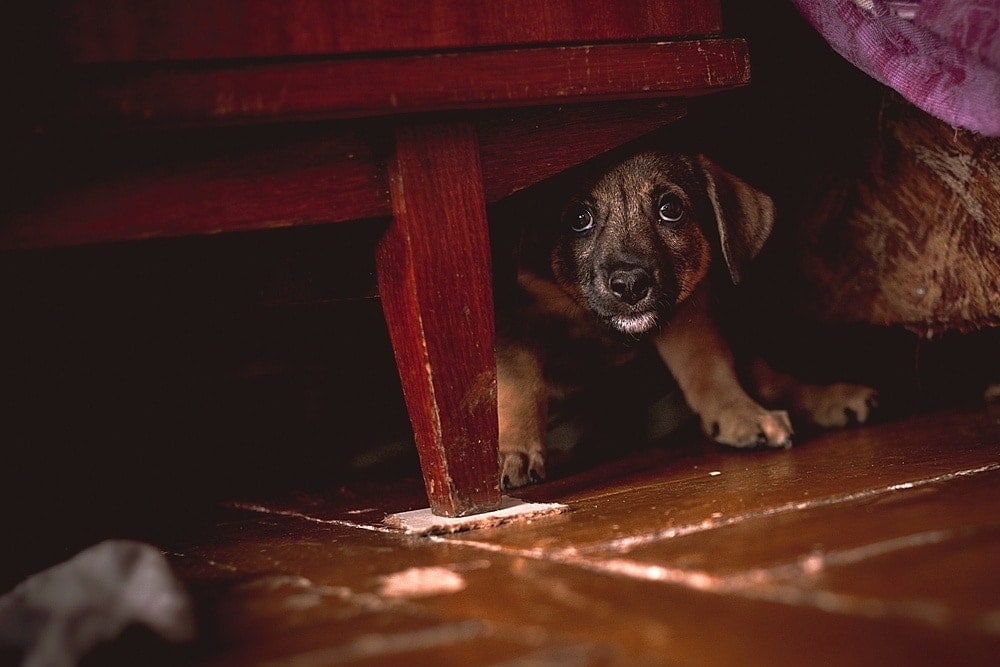
6. Lack of Training
Without proper training, puppies might not understand that biting is not an acceptable behavior. They need guidance and discipline to learn what’s expected of them. Without it, the biting problem will only lead to other unacceptable behavior.
How to Stop It: Use consistent training methods to teach your puppy not to bite. Commands like “No” or “Stop” can be helpful. Be patient, as training takes time and repetition.
7. Predatory Instinct
Even the sweetest puppy has some degree of predatory instinct. This instinct can cause your puppy to chase, pounce, and bite, especially when they are playing or excited. But while some of this behavior is understandable, that doesn’t mean it can be allowed to continue.
How to Stop It: Keep your puppy’s predatory instincts in check by providing plenty of physical and mental exercise. Training games that involve commands can be an effective way to channel these instincts in a positive direction.

8. Overstimulation
Puppies can bite when they get too excited or overwhelmed. This is often seen during playtime, when their energy levels tend to skyrocket. The good news is that overstimulation is a sign that something needs to be addressed.
Even though it’s good for dogs to play, your puppy might be playing too much. Therefore, it’s important to monitor and manage this accordingly.
How to Stop It: Learn to recognize when your puppy is becoming overstimulated and needs a break. A time-out can help them calm down and learn that overly excited behavior will end the fun.
Conclusion
Biting is a natural part of a puppy’s behavior, especially during their growth and development. However, it is crucial to guide them to ensure that this behavior does not continue into their adult life. Understanding the reasons behind their biting and taking the appropriate steps can help you create a safe and happy environment for both you and your puppy.
Patience, consistency, and lots of love are key to teaching your furry friend that while biting may be fun for them, it’s not so enjoyable for us humans!
Featured Image Credit: Haelen Haagen, Shutterstock



